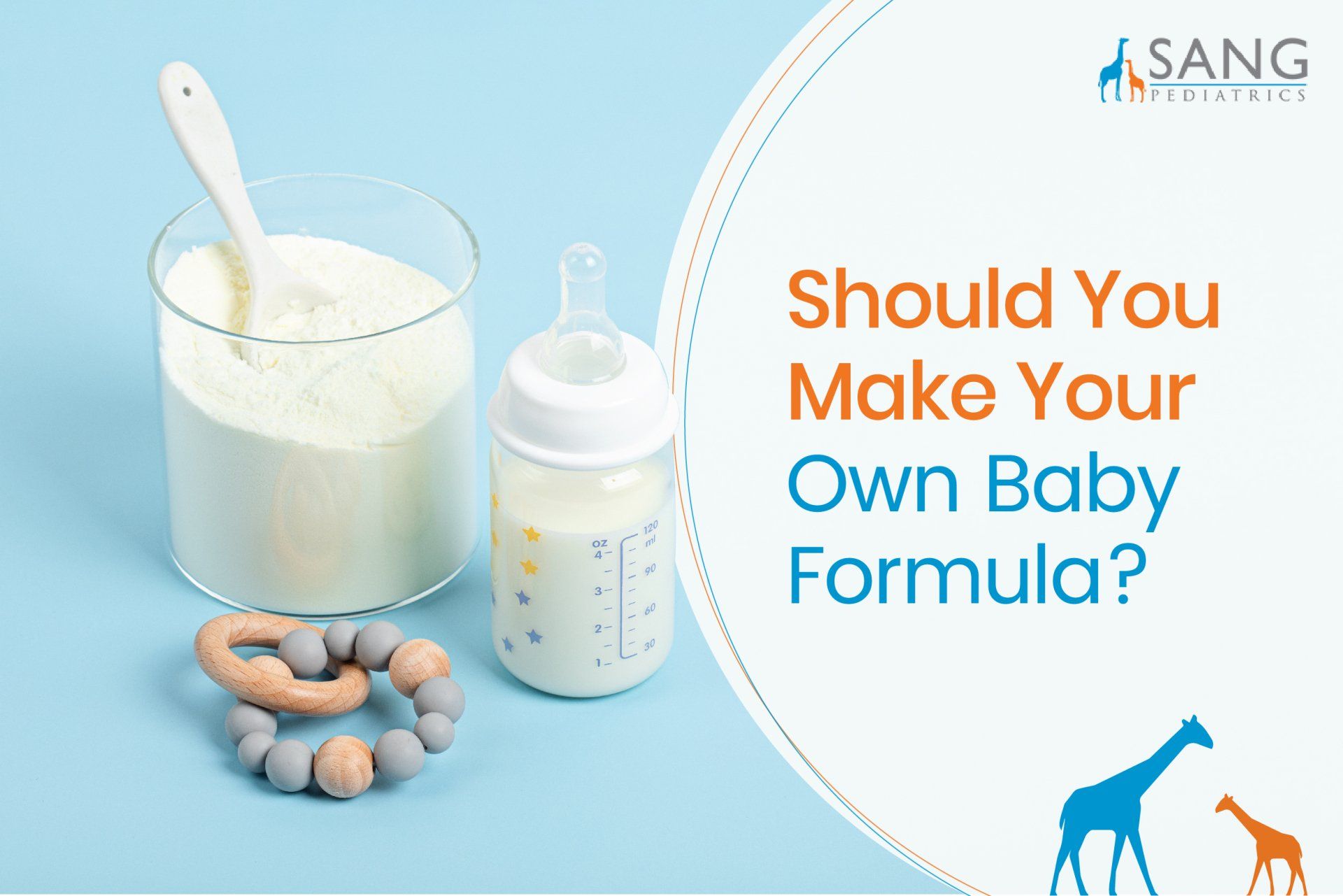All health experts recommend breastfeeding, but not all moms can. Some women cannot breastfeed because their milk supply is too low. When you can’t breastfeed or need to supplement your breast milk, instant formula offers babies the best nutritional value. Over the years, homemade baby formula recipes have been popping up online, and parents are indeed making it at home. But is it safe? The answer is no.
Parents might want to make their own baby formula for a few reasons. Some parents may want to go the organic route, while others may want to cut costs on store-bought formulas. However, the
Food and Drug Administration (FDA) says that none of those reasons are valid enough to compromise your baby's health. Let’s find out why homemade formula should never be an option.
Homemade Baby Formula Is Downright Dangerous
All parents want what’s best for their baby. That’s why you should never feed your baby homemade formula. There is almost no way to get a true nutritional analysis of home formula, thus posing many risks. Here are reasons why it is so unsafe.
Ingredients Can Be Harmful
Recipes found online for DIY baby formula often use raw milk from goats or cows. Raw milk or unpasteurized milk is never safe for drinking. As a matter of fact, babies and young children are more susceptible to complications after consuming unpasteurized milk.
Raw milk does not undergo a process called pasteurization. The process involves heating milk to a high enough temperature for a prolonged period to kill disease-causing bacteria. The dangers of consuming raw dairy include contracting infections such as:
- Listeria
- Salmonella
- E. Coli
- Staphylococcus aureus
- Campylobacter and other pathogens that cause
foodborne illness
Nutritional Imbalances
The
first year of a baby's life provides a crucial window of opportunity for brain development. Your infant could suffer long-term health issues without adequate nutrition from infant formula, even for just a few days or weeks. The use of homemade formulas without professional regulation increases the risk of babies getting too much or too little of each particular nutrient.
Homemade infant formula uses either whole milk, skim milk, goat milk, and other ingredients with uneven nutrients. With all the steps involved in DIY formula preparation, inaccurate measurements are also inevitable. Excessive or deficient nutrients may cause:
High Risk of Contamination
Several regulations govern the strict handling, preparation, and storage of baby formula that most moms who prepare the formula at home are not familiar with. As a result, making your own baby formula presents a greater risk of contamination than buying store-bought formula.
Containers, utensils, and countertops used in making a baby formula at home are open to bacteria and other pathogens. Slight hygiene or sanitization lapse can result in contamination. Moreover, DIY formula ingredients are often purchased online from multiple sellers, so you may not know how every component is made, creating a potential risk to your child's safety.
Dangerous Complications
Using homemade formula can lead to severe electrolyte imbalances, toxicity, seizures, anemias, infections, and allergic reactions, which are all potentially life-threatening for infants. The unregulated homemade formula may have a high protein concentration and electrolytes (sodium) in cow's milk, putting stress on an infant's immature kidneys. Similarly, the U.S. Food and Drug Administration read reports of newborns hospitalized with hypocalcemia - low calcium - due to homemade formulations.
Note: FDA advises parents and caregivers whose infants have consumed homemade formula to contact their health providers if there are any adverse effects.
What Makes Instant Formula the Best Choice
The American Academy of Pediatrics (AAP), Food and Drug Administration (FDA), Centers for Disease Control and Prevention (CDC), and other medical organizations agree that you should never feed your baby homemade infant formula. Here's why commercial infant formula is the next best choice for breast milk:
Commercial Infant Formula is the Safest Food You Can Buy
In the United States, commercial baby formula is manufactured in extremely safe, sterile environments. Several laws and government rules ensure that infant formula sold at retailers meets strict regulations regarding its ingredients to support babies' healthy growth and development. Formula manufacturers also invest years and millions of dollars in research on infant nutrition to ensure it is suitable for your infant.
In fact, the
Infant Formula Act of 1980 ranks among the most specific and comprehensive legislation ever passed by Congress. The law establishes nutrient requirements, requires quality and nutrient control procedures, details inspection requirements, and more.
Every year, FDA inspectors inspect each company's manufacturing facilities. Each facility provides them with samples of the formula. FDA then analyzes it to ensure compliance with all regulations. Formulas that do not meet the level of nutrients or required range are adulterated, according to the FDA.
Manufacturers also cover several formula types that meet specific sensitivities, like soy formulas, hypoallergenic formulas, and other types. The best formula brands even offer alternatives for those opting for organic formula.
Baby's Next Best Nutritional Source Next to Breast Milk
There is no doubt that breast milk is the best food to offer your child, but an equally good choice is the commercial formula. Infant formula proteins, minerals, carbohydrates, vitamins, and fats are precisely balanced to create a nutritional composition comparable to breast milk. They supply your child with the essential nutrients necessary for proper growth and development.
Mothers sometimes can’t exclusively breastfeed for 12 months, at which time formula becomes essential. It may also provide supplementary nutrition to a breastfed infant. Furthermore, just as breast milk changes composition as a child grows, manufacturers tailor infant formulas according to an infant's age.
Bottom Line: Homemade Baby Formula is a Big No-No
Formula recipes on the internet may appear healthy and nutritionally complete, but they are highly dangerous. The instant formula is the best alternative for parents who are unable or do not wish to breastfeed. With a nutrition-balanced and safety-formulated instant formula, your child can get all the nutrients they need during their first 12 months of life.
For help choosing the right formula for your baby, the best thing you can do is speak to a
pediatrician. Call or schedule an appointment with
Sang Pediatrics today. Let's ensure your baby is on the right track to good health and nutrition.













